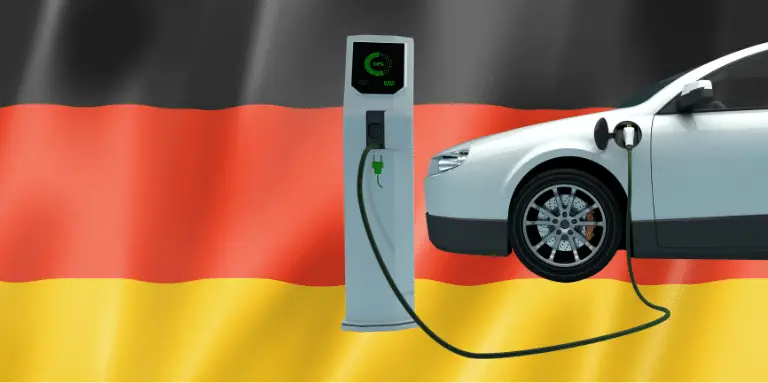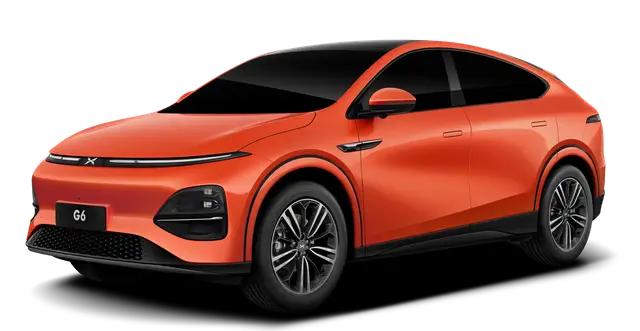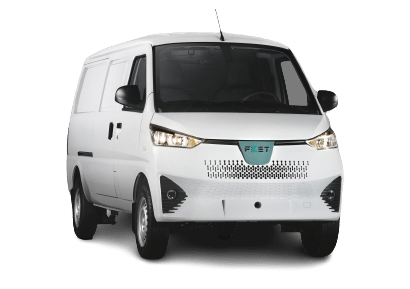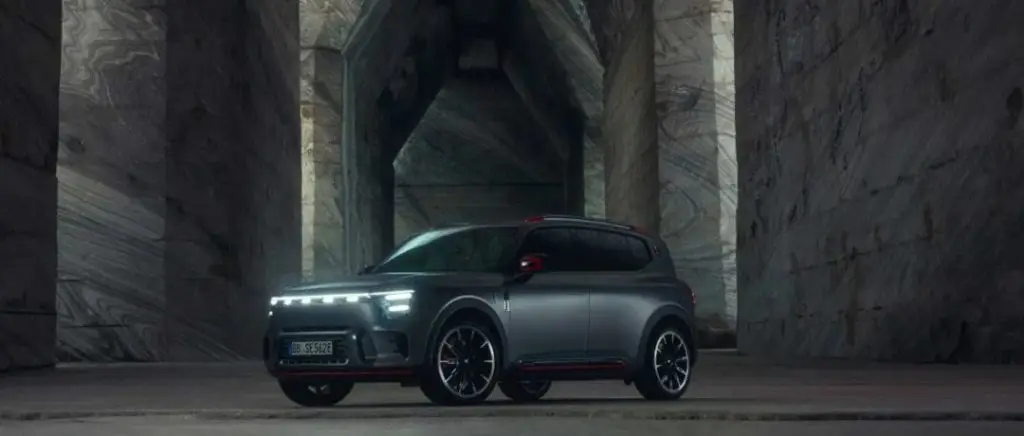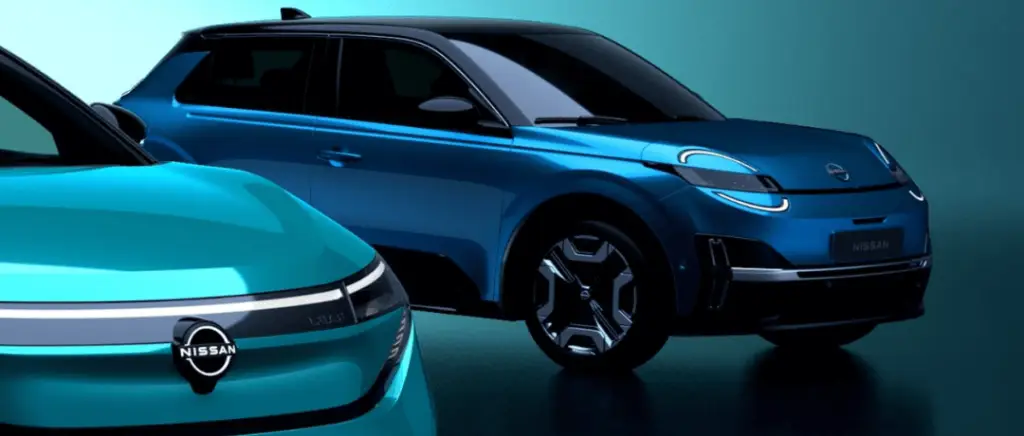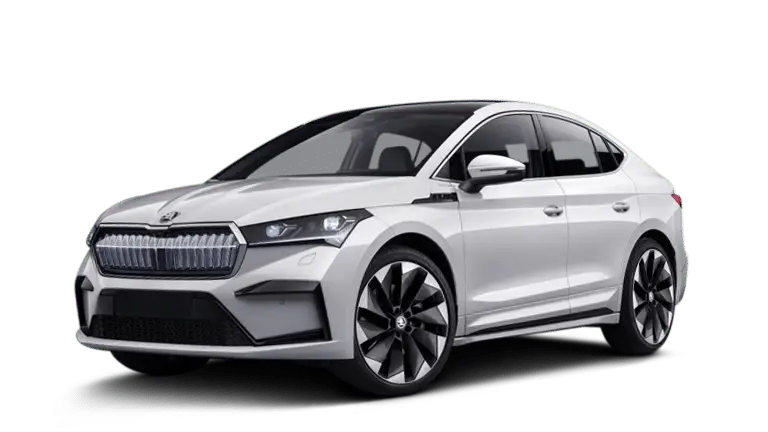
VS
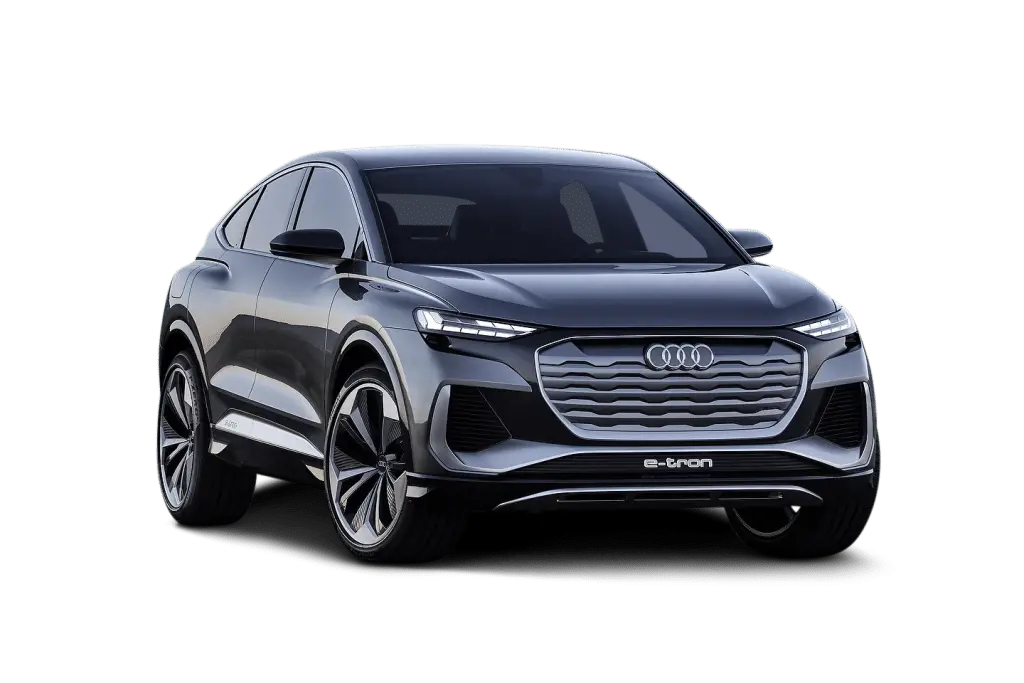
Compare the Skoda Enyaq vs Audi Q4 e-tron in our electric car comparison tool
With Beev
Switch to
Electric car
or install your
Charging station
For individuals and businesses
Germany: a world leader in electric mobility
In 2023, electric cars accounted for 27% of new car sales in Germany. This market share is rising steadily, and is expected to reach 50% by 2030.
This leading position is due to a number of factors, including :
- German consumers' growing environmental concerns
Germans are increasingly concerned about air pollution and climate change. They are therefore increasingly inclined to buy electric cars, which are cleaner than petrol or diesel cars.
- Improving the performance andrange of electric cars
Electric cars are increasingly efficient and have longer ranges. This makes them more attractive to consumers.
German carmakers are well aware of this trend, and are investing heavily in the development of new electric cars.
In 2024, German automakers are expected to launch more than 20 new electric models.
Germany is also a leader in the development of charging infrastructures for electric cars.
According to the website of theGerman Federal Network Agency (Bundesnetzagentur), the number of public charging stations in Germany reached 82,609 in July 2023. This represents an increase of 31% in one year. This puts Germany in third place among European Union countries in terms of the number of charging points, behind the Netherlands and France.
In comparison with France, the number of public charging stations in France is set to increase dramatically in 2023. In May, according toAvere-France it reached 100,000, an increase of 66% in one year. This puts France in second place among the best-equipped European Union countries, behind the Netherlands and ahead of Germany.
However, kiosks are unevenly distributed across the country. Île-de-France accounts for half of all kiosks, followed by Auvergne-Rhône-Alpes. The least well-equipped regions are Corsica and Hauts-de-France.
The French government has set an ambitious target of 500,000 public charging stations by 2030. This target will meet the growing demand for electric vehicles.
Indeed, Germany's leading position in electric mobility is a clear sign of the transition to more sustainable mobility. The country is well positioned to play a leading role in the development of electric mobility worldwide.
Germany becomes a major market for electric cars
Germany has become a major market for electric cars, particularly in recent years. By 2023 registrations of accounted for 19% of total car sales in Germanyan increase of 16% on the previous year.
This growth is due to a number of factors, including :
- Public policies to promote the energy transition
Germany has set itself the target of ending the sale of combustion-powered cars by 2035. The German government has therefore introduced a number of measures to support the development of electric vehicles, such as purchase subsidies, tax exemptions and parking advantages.
- The growing range of electric models
German carmakers such as Volkswagen, BMW and Mercedes-Benz are investing heavily in the development of electric vehicles. They now offer a wide range of models at attractive prices.
- Changing consumer expectations
German consumers are increasingly sensitive to environmental and energy issues. They are therefore more inclined to choose electric cars, which are considered to be more environmentally friendly than internal combustion engine cars.
Despite this growth, Germany is still a long way from its targets. In fact, the the German government's target is to have 15 million electric vehicles on the road by 2030. To reach this target, sales of electric vehicles will have to increase significantly.
Continued public policies in favor of the energy transition, and the arrival of new electric models at even more attractive prices, should help to sustain growth in the German electric vehicle market.
Top 10 electric cars in Germany
1 - Volkswagen ID.3
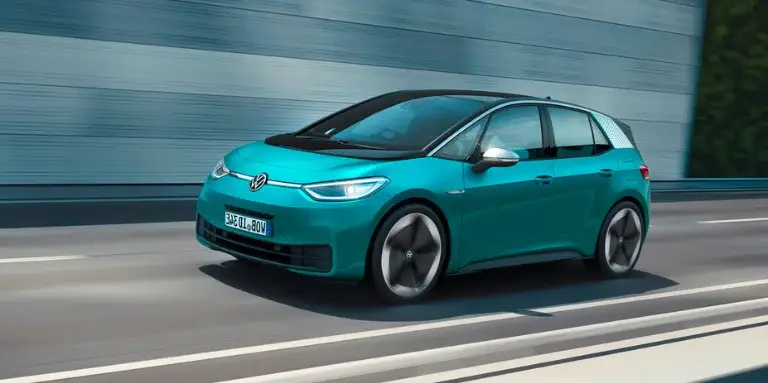
The Volkswagen ID.3 is an electric compact electric sedan compact sedan. Powered by a 150 kW (204 hp) electric motor, it accelerates from 0 to 100 km/h in 7.9 seconds. Its maximum range is 425 km, enough to meet the needs of most drivers.
The ID.3 is agile and comfortable to drive. It's also well equipped, with a wide range of standard features, including a 10-inch touchscreen, navigation system and quality audio system.
2 - Tesla Model 3
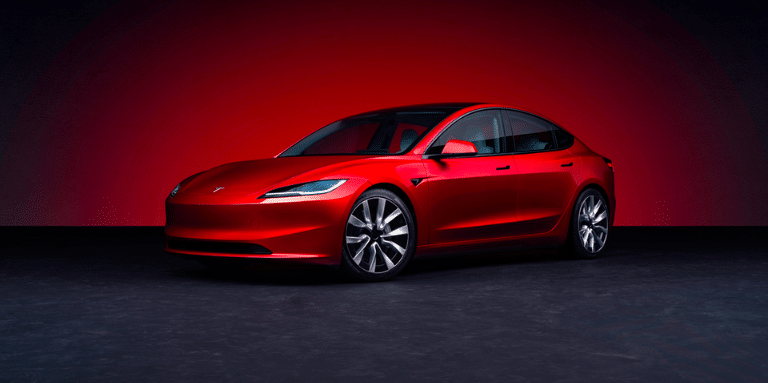
The Tesla Model 3 is an electric family sedan offering exceptional performance. It is available in two versions: Standard Autonomy Plus and Long Autonomy.
The Autonomie Standard Plus version boasts 276 hp and accelerates from 0 to 100 km/h in 6.1 seconds. Maximum range is 513 km.
The Grande Autonomie version boasts 441 hp and accelerates from 0 to 100 km/h in 4.4 seconds. Maximum range is 629 km.
Both versions of the Model 3 can reach a top speed of 260 km/h. They also feature a fast-charging function that recovers up to 282 km of range in just 15 minutes.
3 - Audi Q4 e-tron
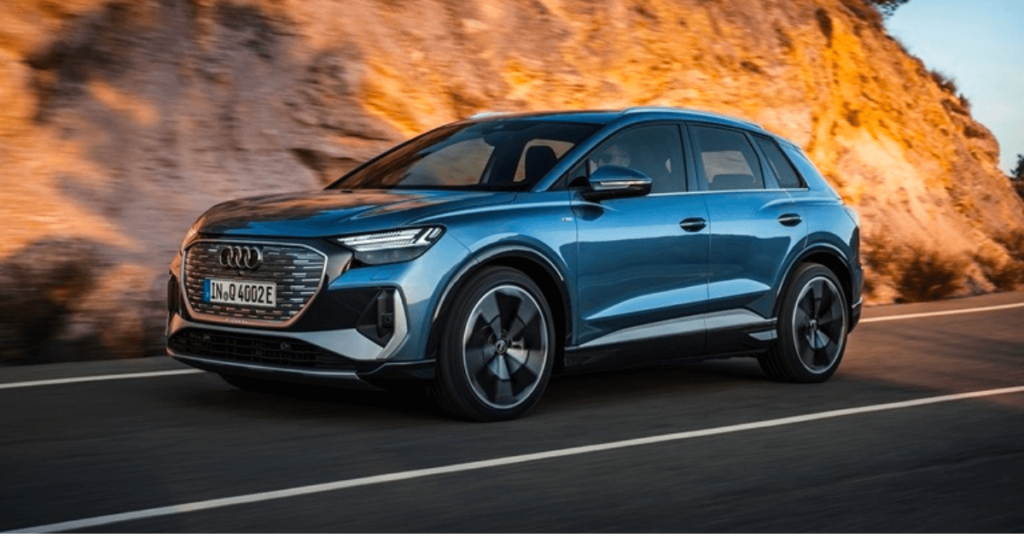
L'Audi Q4 e-tron is a compact electric SUV produced by German carmaker Audi. It is based on the Volkswagen Group's MEB (Modular Electric Toolkit) platform, and is the electric version of the Audi Q4 SUV.
Production of the Audi Q4 e-tron began in 2021, and it is available in two versions: Q4 e-tron and Q4 Sportback e-tron.
The Audi Q4 e-tron is equipped with an electric motor, located on the rear axle, which develops 204 hp and 310 Nm of torque. It can reach a top speed of 160 km/h and accelerate from 0 to 100 km/h in 7.9 seconds.
The Audi Q4 e-tron is equipped with a 77 kWh lithium-ion battery, giving it a range of 517 km according to the WLTP cycle. It can be recharged from 5% to 80% in 38 minutes at a 125 kW fast-charging station.
The interior of the Audi Q4 e-tron is modern and spacious. It features a 10.1-inch MMI Touch infotainment system, a 10-speaker Bang & Olufsen sound system and a panoramic roof.The Audi Q4 e-tron is in direct competition with the Tesla Model Ythe Volkswagen ID.4 and the Ford Mustang Mach-E.
4 - BMW i4
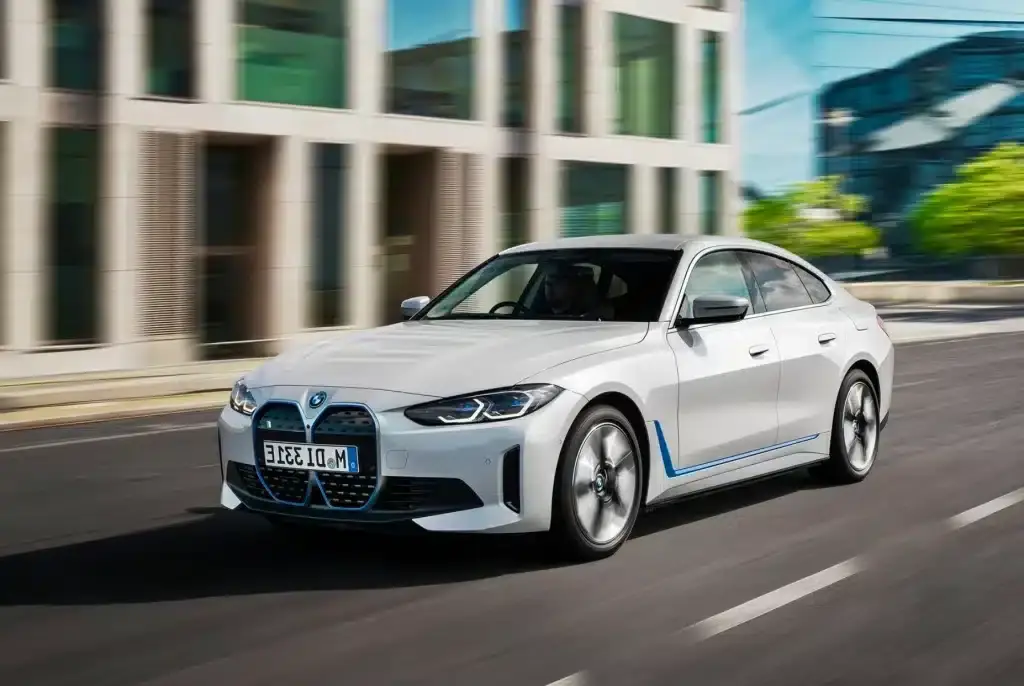
The BMW i4 is a mid-size electric sedan produced by German carmaker BMW. It is based on BMW's CLAR platform, and is the electric version of the BMW 4 Series Gran Coupé.
The BMW i4 is available in two versions: BMW i4 eDrive40 and BMW i4 M50.
The BMW i4 eDrive40 features an electric motor on the rear axle, delivering 340 hp and 430 Nm of torque. It can reach a top speed of 225 km/h and accelerate from 0 to 100 km/h in 5.7 seconds.
The BMW i4 M50 is equipped with two electric motors, one on each axle, delivering a combined output of 544 hp and 795 Nm of torque. It can reach a top speed of 240 km/h and accelerate from 0 to 100 km/h in 3.9 seconds.
The BMW i4 is equipped with an 81.5 kWh lithium-ion battery, giving it a range of 590 km according to the WLTP cycle. It can be recharged from 5% to 80% in 31 minutes at a 150 kW fast-charging station.
5 - Skoda Enyaq iV
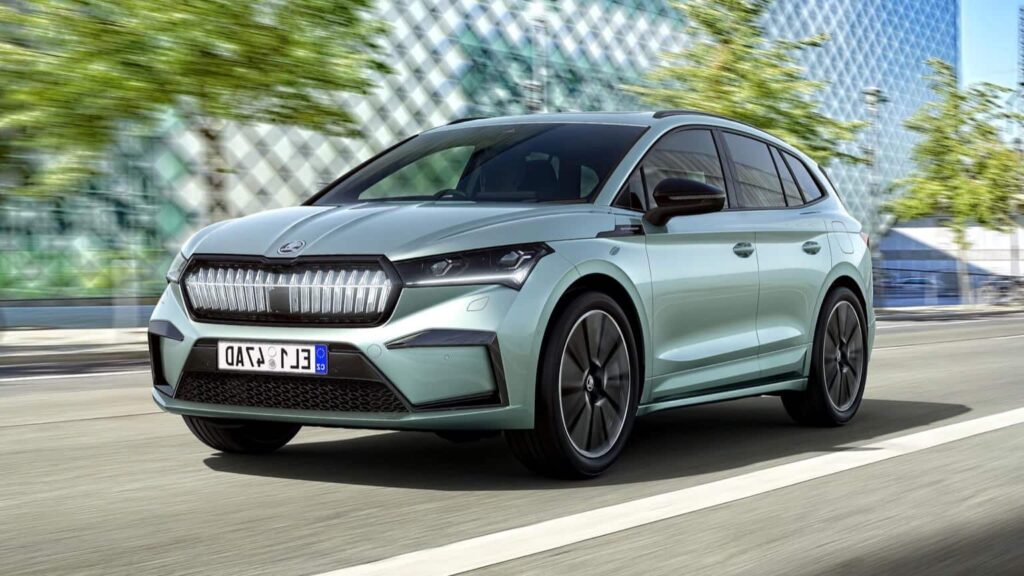
Production of the Skoda Enyaq iV began in 2021, and is available in three versions: 50, 60 and 80.
The Skoda Enyaq iV 50 is equipped with an electric motor, located on the rear axle, which develops 150 hp and 310 Nm of torque. It can reach a top speed of 160 km/h and accelerate from 0 to 100 km/h in 8.7 seconds.
The Skoda Enyaq iV 60 is equipped with an electric motor, located on the rear axle, which develops 180 hp and 350 Nm of torque. It can reach a top speed of 160 km/h and accelerate from 0 to 100 km/h in 8.0 seconds.
The Skoda Enyaq iV 80 is equipped with two electric motors, one on each axle, delivering a combined output of 204 hp and 310 Nm of torque. It can reach a top speed of 180 km/h and accelerate from 0 to 100 km/h in 7.9 seconds.
The Skoda Enyaq iV is equipped with a 58 kWh, 62 kWh or 82 kWh lithium-ion battery, giving it a range of 390 km, 410 km or 520 km according to the WLTP cycle. It can be recharged from 5% to 80% in 58 minutes at a 125 kW fast-charging station.
6 - Hyundai Kona Electric
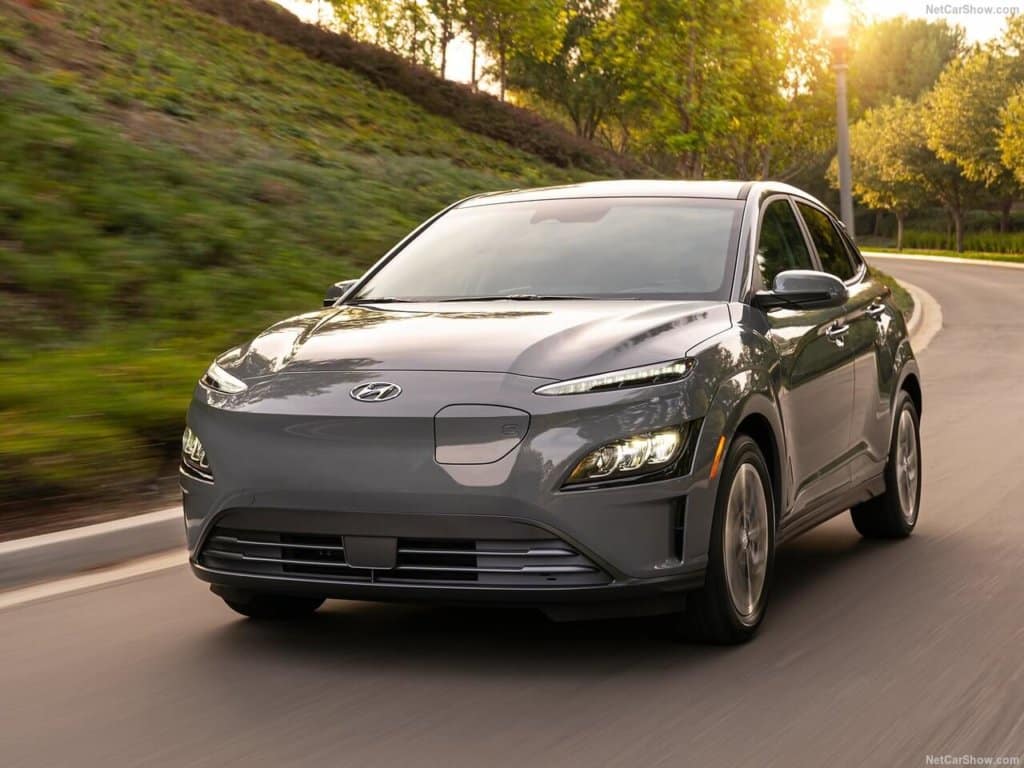
The Hyundai Kona Electric is a compact electric SUV offering balanced performance and exceptional range. The 136 hp electric motor offers moderate acceleration, but is powerful enough for everyday driving. Top speed is 167 km/h.
The Kona Electric is available with two battery sizes: 39.2 kWh and 64 kWh. The 39.2 kWh version offers an estimated range of 467 kilometers, while the 64 kWh version offers an estimated range of 483 kilometers. This means the Kona Electric can easily handle both daily commutes and road excursions.
7 - Renault Megane E-Tech
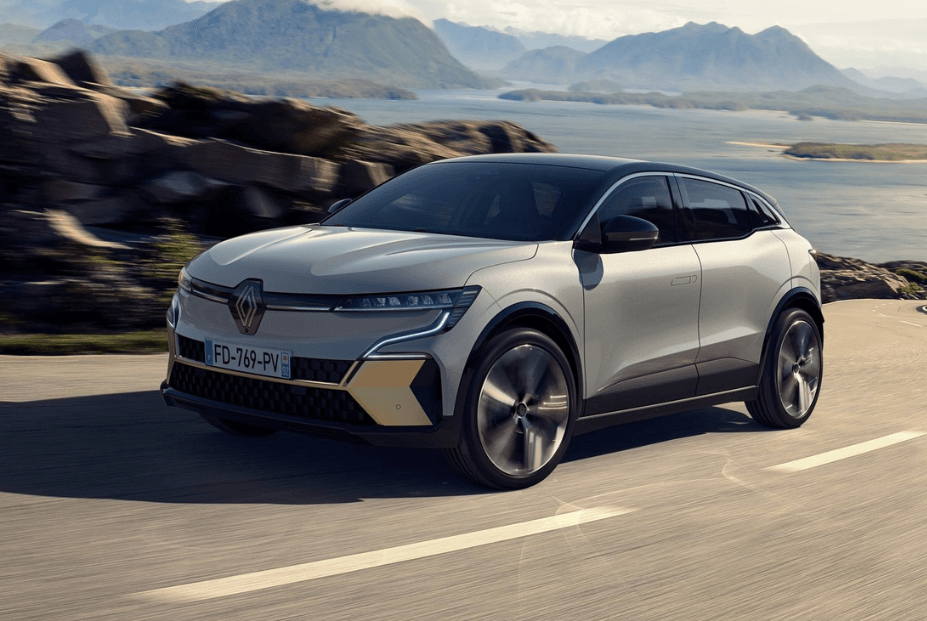
The Megane E-Tech is powered by a 90 kWh battery offering an estimated range of up to 470 kilometers (292 miles). It can be charged from 10% to 80% in just 30 minutes using a 130 kW DC rapid charger. The Megane E-Tech is also equipped with a heat pump to help improve its efficiency in cold weather.
It features an elegant, modern design that is both stylish and practical. It has a spacious interior that comfortably seats five adults, and comes with a variety of standard features, including a 10-inch infotainment system, digital instrument cluster and a suite of driver assistance functions.
8 - Ford Mustang Mach-E
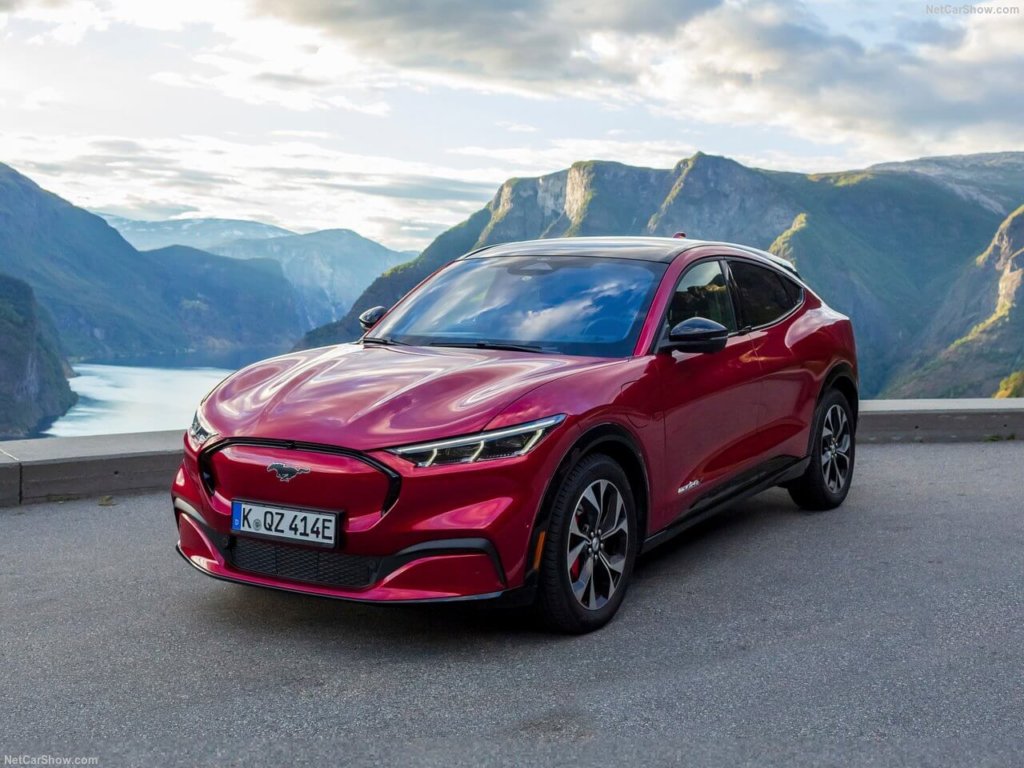
The Ford Mustang Mach-E is a high-performance electric SUV with an impressive range. It is available in three battery sizes, offering ranges from 235 to 330 miles. The GT version is the most powerful, with a top speed of 140 mph.
The Mustang Mach-E is also equipped with a number of advanced features, including a 15.5-inch digital instrument panel, a 10.25-inch touchscreen infotainment system and a Ford Co-Pilot 360 driver assistance system.
9 - Mercedes-Benz EQB
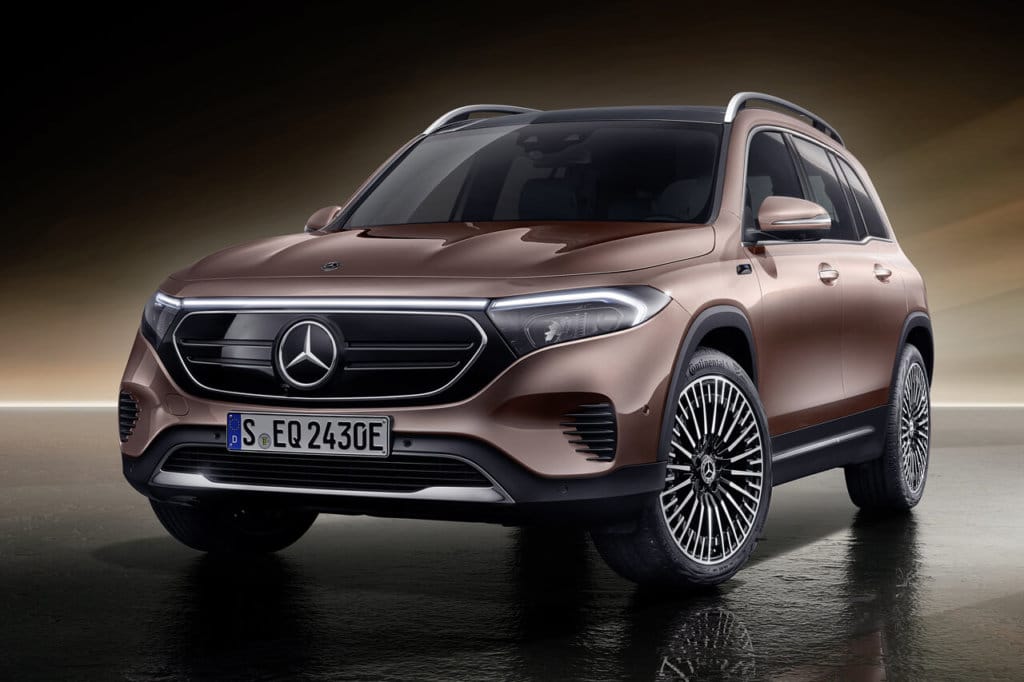
The Mercedes-Benz EQB is a compact electric SUV that offers an excellent balance between space, performance and versatility. It is available in two versions, the EQB 250 and the EQB 350 4MATIC.
The EQB 250 is equipped with a 188 hp electric motor and a 66.5 kWh battery. It can reach a top speed of 160 km/h and has a range of 423 km. The EQB 350 4MATIC is equipped with a 292 hp electric motor and a 77.4 kWh battery. It can reach a top speed of 180 km/h and has a range of 473 km.
10 - Mercedes EQG
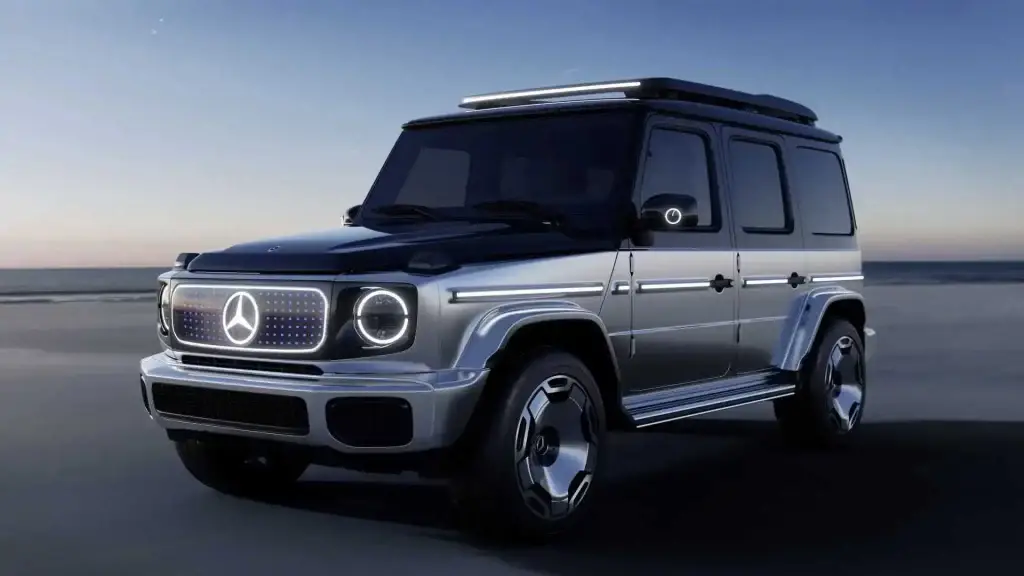
The Mercedes EQG is a luxury 4×4 electric car produced by German carmaker Mercedes-Benz. It is based on the second-generation Mercedes G-Class.
The EQG will have a range of around 400 kilometers. It will also be able to recharge quickly, up to 80% of its capacity in 30 minutes.
The Mercedes EQG will go on sale in 2024. The price is still unknown, but is expected to start at 150,000 euros.
Summary table of the top 10 electric cars in Germany 2023
| Car models | Autonomy | Performance | List prices in Germany |
|---|---|---|---|
| Volkswagen ID.3 | 424 Km | 150 kW / 204 hp | 47 595 € |
| Tesla Model 3 | 491 Km | 225kW / 305 hp | 41 990 € |
| Audi Q4 e-tron | 517 Km | 125 kW / 170 hp | 52 950 € |
| BMW i4 | 590 Km | 250 kW / 340 hp | 59 200 € |
| Skoda Enyaq iV | 545 Km | 150 kW / 240 hp | 43 950 € |
| Hyundai Kona Electric | 484 Km | 150 kW / 204 hp | 41 990 € |
| Renault Megane E-Tech | 450 Km | 96 kW / 130 hp | 45 900 € |
| Ford Mustang Mach-E | 440 Km | 198 kW / 269 hp | 55 800 € |
| Mercedes-Benz EQB | 423 Km | 215 kW / 292 hp | 55 520 € |
| Mercedes EQG | 482 Km | 430 kW / 577 hp | 200 000 € |
Conclusion
Germany is positioning itself as a leader in electric mobility, with steady growth in sales. Supported by government policies, German automakers are launching various electric models in 2024, responding to consumers' environmental concerns.
Top ten electric cars ranking highlights innovative models available from Beev. With a robust charging infrastructure, Germany looks set to play a key role in sustainable electric mobility, despite persistent challenges. Current trends suggest continued growth in the electric car market.
Discover the electric cars available from Beev
